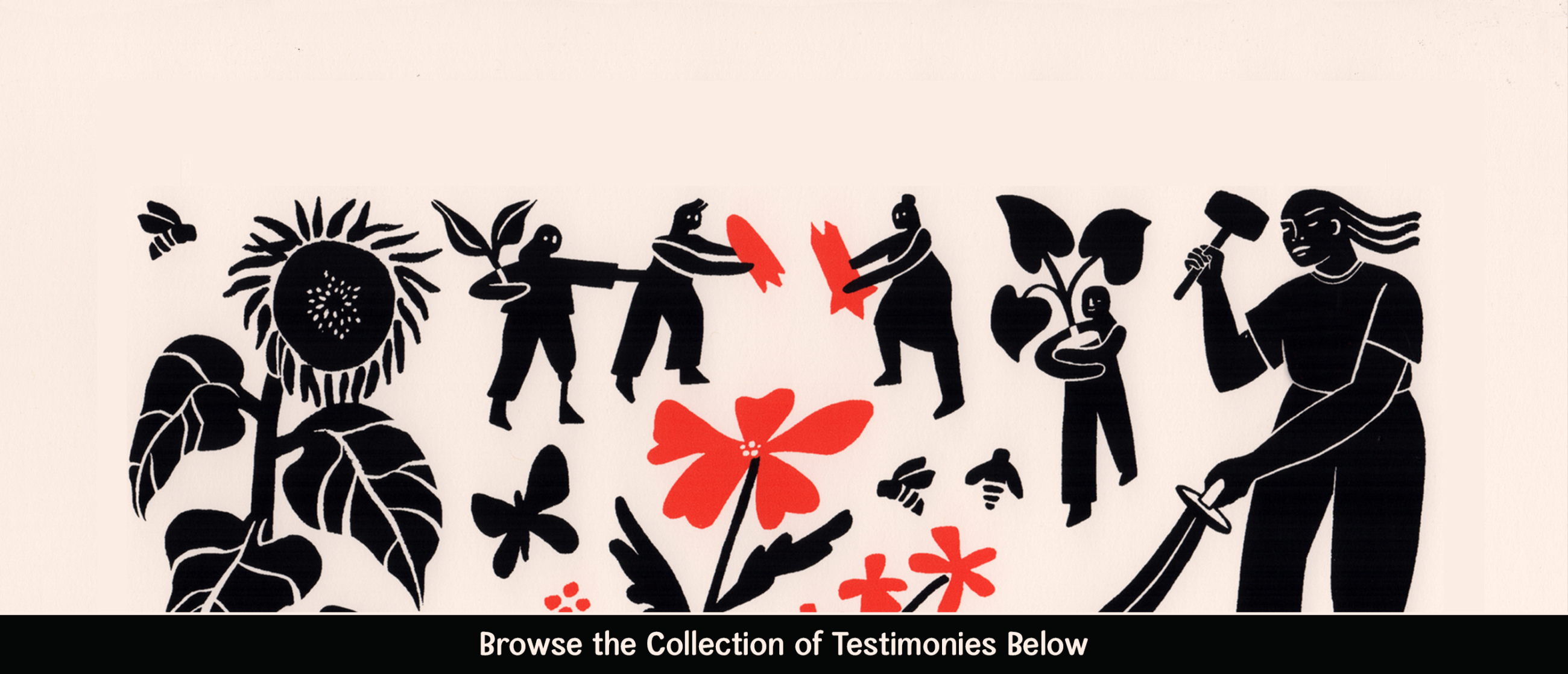Banner illustration by Molly Costello from JustSeeds
The California Reparations Task Force
The California Reparations Task Force is a history-making effort by the state of California to study the legacy of slavery on African Americans and to develop proposals for reparations. On June 29, 2023, the Task Force issued its final report to the California Legislature. The final report surveys the ongoing and compounding harms experienced by African Americans as a result of slavery and its lingering effects on American society today, and proposes a comprehensive reparations plan in satisfaction of the direction set forth by the Legislature in AB 3121 (2020).
Here we have gathered the complete collection of presentations and testimonies given before the California Reparations Task Force, which have been organized by topic because we think teachers, students, researchers, community activists and others will find incredible value in these videos and written statements. Taken as a whole, they shed light on the deep structural inequalities in America and illustrate how ongoing reparations efforts are necessary to address racial disparities.
Browse the collection of testimonies by theme:
The Othering & Belonging Institute:
The Othering & Belonging Institute (OBI) recognizes that racism is woven into the fabric of society and impacts all aspects of life including housing, education, healthcare, and economic opportunity. For more than a decade, our work at the Institute on racial equity has ambitiously sought to both untangle the root causes of exclusion, and offer research-based pathways for creating vibrant, inclusive structures in which all people have voice and agency.
The Institute supports the mission of the Task Force and contributes in a variety of ways. One of our faculty cluster members, Dr. Jovan Scott Lewis, is one of nine members of the Task Force appointed by California's governor and the president pro tempore of the state senate. Our director and assistant director of the Institute, john a. powell and Stephen Menendian, respectively, were among the 67 experts who shared witness testimonies. Christian M. Ivey has led listening sessions in collaboration with the Task Force and other OBI staff, including Robin Pearce, Ayketa Iverson, Eli Moore, Nicole Montojo and Sarah Crowell to foster a space for community members to share stories about the hardships faced as Black Californians.
Browse our work at the Institute on:
- Reparations Efforts
-
In addition to the ongoing reparations efforts led by the Task Force, the Othering & Belonging Institute has provided a synopsis and summary of extant reparations efforts in the U.S. and around the world. These findings are described in the introductory essay of our Structural Racism Remedies Repository.
More from OBI on Reparations:
- Structural Racism
-
The Institute's work on The Roots of Structural Racism project has helped identify the growing rates of racial residential segregation as the deep-rooted cause of systemic racial inequality. The following instructional video helps elaborate how racism can be harbored across interpersonal, institutional, systemic, or structural levels that reinforce racial inequality and othering:
More from OBI on Structural Racism:
- Website: Race—The Power of an Illusion
- Publication: The Roots of Structural Racism
- Repository: The Structural Racism Remedies Repository
- Impacts on Health
-
Our faculty clusters at the Institute have conducted critical research on public health policy, the racialization of public health during COVID-19, and mapping vulnerable populations in the United States. These clusters are led by Associate Director Denise Herd, a renowned expert in racial and ethnic health disparities, who works closely with cluster coordinator and public health researcher Robin Pearce. See more projects and information about their work at the Institute surrounding health.
More from OBI on Racial Health Disparities:
- Housing, Transportation, & Infrastructure
-
The Othering & Belonging Institute hosted a Summer Teacher Fellowship on Race and Housing in the Bay Area, where over two dozen teachers and community partners were invited to examine the region’s histories of racial dispossession and housing, the geographies they have created, and current policy and organizing work around housing justice. They developed a repository containing two types of important resources: K-12 curriculum and presentations on race and housing. The curriculum they created is divided into three units: Place & Identity, Afrofuturism, and Racial Capitalism. These interdisciplinary resources are designed to help students understand how racial exclusion has been reinforced through housing policies and practices, as well as teaching them how to envision a future of thriving communities embodied by racial equity and belonging. In addition to reaching several hundred attendees at the curriculum launch, these resources continue to be used by pre-service and in-service educators, community partners, and the public at large, as an interest in themes of race and housing continue to grow in California. Explore the full curriculum for more details.
More from OBI on Housing, Transportation and Infrastructure:
- Publication: What the 2020 Census Reveals about Segregation
- Blog Post: Racist Language Should Not Be Purged From Property Deeds
- Video: Race & Inequality in America: The Kerner Commission at 50 conference

